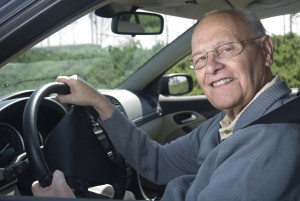Currently, there are more than 30 million licensed drivers age 65 or older. That statistic is growing as the population of 65 and older is the fastest growing demographic in the US. After the age of 75, the risk motorist crashes greatly increases as many elder drivers are unaware or unwilling to admit to their developing challenges with being on the road.
So where does that leave family members and caregivers? According to Eldercare.gov in order to keep our aging loved ones safe there are few questions you should ask yourself
before you talk to an elder driver. If you answer “yes” to any of the following questions you should start a conversation about driving safety and offer alternatives that will not injure the older driver’s dignity and sense of freedom.
- Does he or she get lost on routes that should be familiar?
- Have you noticed new dents, scratches, or other damage to his or her vehicle?
- Has he or she been warned or ticketed by a police officer for poor driving?
- Has he or she experienced a close call or crash recently?
- Has a doctor advised him or her to limit or stop driving for health reasons?
- Is he or she overwhelmed by road signs, signals, markings, or other things while driving?
- Does he or she take any medication that might affect the capacity to drive safely?
- Does he or she stop inappropriately or drive too slowly, preventing the safe flow of traffic?
- Does he or she suffer from Alzheimer’s disease, dementia, glaucoma, cataracts, arthritis, Parkinson’s disease, diabetes, or another condition that may affect driving skills?
While sometimes slight modifications like only driving in the good weather and daylight can alleviate driving concerns, other times the risks may be too great. If you need help starting that conversation with an elder driver or you are not sure whether your loved one is safe on the road, contact Browning Geriatric. One of our experience care managers can help keep you and your loved safe!
